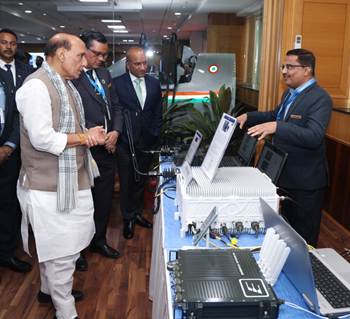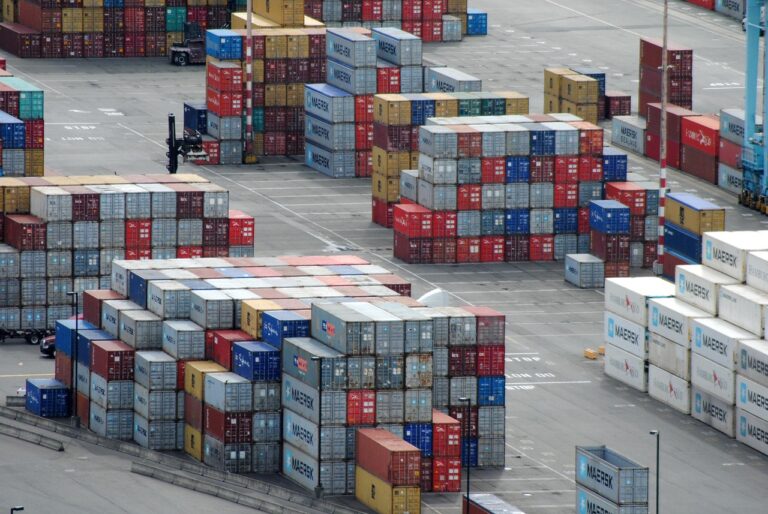
Farmers protesting against the farm laws at Delhi border in Ghaziabad
Opinion
 By Dr. Rajendra Singh*
By Dr. Rajendra Singh*
Farming is integral to India’s culture and Indian civilisation. Farmers from India have been known for their skills and hard work for centuries: It is the Indian farmer who has been able to grow crops ‘even from stone.’
During this ongoing COVID-19 pandemic it is this very farmer who has continued with the agricultural practices and toiled so that we may all have food. It is unfortunate and tragic that because of a few industrialists, during this pandemic, the government has passed laws that will make the farmers their captives.
The first law allows the private sector to buy agricultural produce at whatever price they want. Because of this law, the farmer will have no option but to sell the produce at low prices.
With the second law, innumerable private companies will enter into contract with farmers and dictate to the farmer whichever crop and produce they (the company) needs. So far, this was allowed through sugarcane cooperatives. With this law, private companies will take over the farmlands and the crops produced: They will have control. Farming will be dictated by big companies alone. Mandis will be controlled. In other words, the farmer will no longer have the choice and option to sow what he/she wants. The farmer will now be enslaved and bound by contracts and no longer free to sell his produce in other states. There is no doubt that the farmer will be looted by big companies. This will also affect the natural resource base of the farm and the environment since a company will only be interested in maximising yield, and therefore profit alone.
In Uttar Pradesh, under the 1953 Sugarcane Act, through sugarcane producing cooperatives, between 40,000 and 50,000 small and marginal farmers are doing contract farming for the sugar mills. Although there is a statutory requirement that the contract be signed by both parties on mutually agreed terms – the sugarcane cultivators and the sugar mill – payment is often possible only after judicial direction from the Courts. When thousands of sugarcane farmers who are members of a cooperative have to struggle for the payment due to them, how will an ordinary individual farmer take on these big companies? This law also allows the company to assess the seeds and this again is not in favour of the farmer. There is no mention of how the agreed upon price for the produce will be paid, and who will do an assessment of the yield in case the crop fails or is less than expected.
What is clear from this law, is that while companies have all options to protect their interest, there is no such provision made for the farmer. This new law is outside the Court’s jurisdiction. As per this law, if a farmer wants to take/sell his produce another region, he will have to certify that he/she is the producer. So the farmer will need to travel with completed paperwork and upload the information electronically, when we all know what a challenge connectivity and required facilities are in rural areas. With no options available from anywhere, it is obvious that the farmer will be vulnerable to exploitation and there is nothing that he/she will be able to do.
The third law is around the Amendment of the Essential Commodities Act. In 1995, this law was passed. Under this law, limits to the stocking of essential commodities which are part of diet of ordinary citizens, such as rice, wheat, oilseeds, onion, potato, tomato, etc were set. Stocking these items beyond the limits was illegal and punishable by law. With this new Amendment these limits have been removed. In other words, food of the poor and essential items used for daily cooking have been removed from the essential list and so getting adequate quantities available through the PDS will no longer be possible. There is no doubt that this law will increase the vulnerability of the farmer and further cement exploitation. Companies will now have a free hand in hoarding cereals and other farm produce. With this law, the trader will be able to demand any price by creating artificial shortage.
All three laws indicate that they have formed to favour companies. The farmer has never even asked for these kinds of laws. The farmer is asking that as per the Swaminathan report, support price be paid for agricultural produce. The farmers have decided that these three laws must go, and this will also be beneficial for the government. These three laws are anti-farmer, anti-youth, anti-water and anti-environment. If implemented the entire country will become slaves.
If India is to be become atmanirbhar (self-reliant), these laws must go.
*The writer is an internationally acclaimed water conservationist. The views expressed are personal.






Sir
What you viewed about the three farm enactments are correct. The Government, by enacting these laws is sheding it’s responsibilities of a duty holder and shifting the same to the trading community who will exploit the farming communities for their profit.